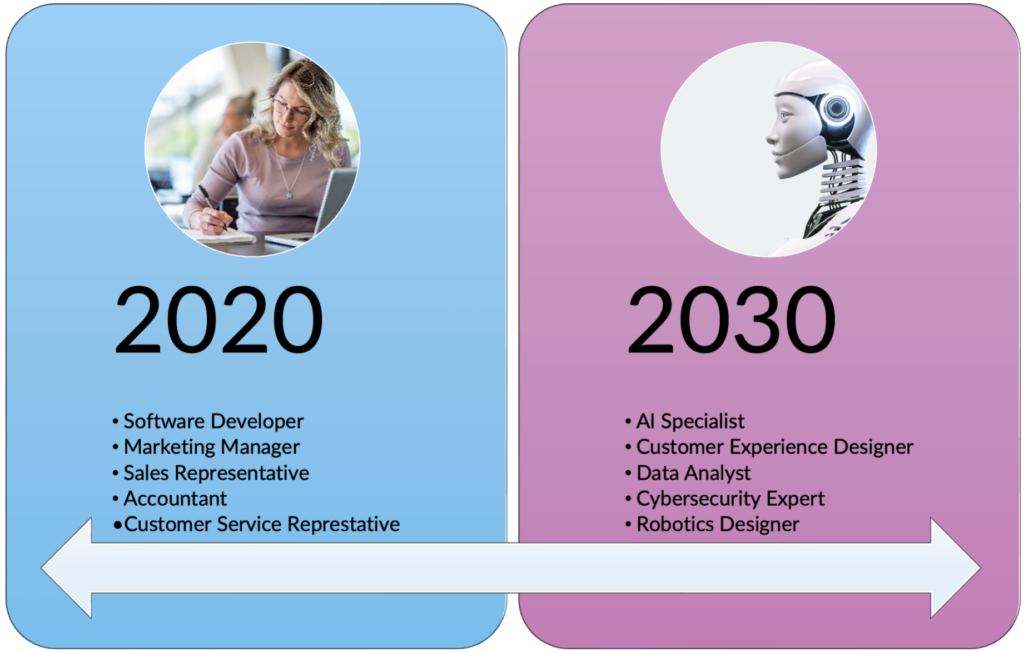Do you remember the days when you could get a degree, land a job, and work your way up the ladder without much hassle? When the skills you learned in college or university were enough to last you a lifetime? When the world of work was relatively stable and predictable?
However, this model is no longer viable in today’s rapidly changing landscape of work and technology. The pace of innovation and disruption is accelerating, creating new challenges and opportunities for workers and employers alike. The skills and knowledge that were in demand yesterday may become obsolete or irrelevant tomorrow. The jobs and roles that exist today may disappear or transform in the near future. This is why we are witnessing the emergence of the “Skills Revolution” – a paradigm shift that recognizes the need for continuous learning and adaptation in the world of work.
The Drivers of the Skills Revolution
What are the factors that are driving the Skills Revolution and creating the need for lifelong learning? Let’s explore some of the main factors behind the Skills Revolution:
Technological Disruption
Technology is one of the most powerful forces that shape the world of work. Advances in automation, artificial intelligence, robotics, biotechnology, nanotechnology, and other fields are creating new possibilities and challenges for workers and employers. Technology can augment human capabilities, enhance productivity, and improve quality of life. But it can also replace human tasks, disrupt industries, and create skill gaps.
A 2020 World Economic Forum report predicts automation will displace 85 million jobs while creating 97 million new roles by 2025, reflecting a shift in the human-machine workforce dynamic. This means that workers will need to acquire new skills or upgrade their existing ones to remain employable and competitive in the labour market.
Globalization
Globalization is another force that influences the world of work. Globalization can create new opportunities for trade, investment, innovation, and growth. But it can also create new challenges for workers and employers, such as increased competition, diversity, and complexity.
According to a report by McKinsey, by 2030, between 75 million to 375 million workers worldwide may need to switch occupational categories and learn new skills because of globalization and automation. This means that workers will need to adapt to changing customer preferences, market conditions, and industry standards. They will also need to develop cross-cultural competencies, communication skills, and collaboration skills to work effectively in a globalized world.
Shifting Industry Needs
As customer demands, business models, and industry trends evolve, so do the skill requirements of workers and employers. Industries and businesses need to constantly innovate, differentiate, and optimize their products, services, and processes to stay relevant and competitive in the market. This means that workers need to keep up with the latest developments, best practices, and standards in their fields. They also need to be creative, flexible, and proactive in solving problems and seizing opportunities.
The Role of Recruitment and Training Firms

Essential Skills for 2030 (vs. 2020)
As you can see, embracing lifelong learning and staying ahead of the curve in the Skills Revolution is not an easy task. It requires a lot of commitment, effort, and support. This is where recruitment and training firms can play a vital role. Recruitment and training firms can help you in becoming a lifelong learner and for your organization with its training programs. Recruitment and training firms can do this by:
Identifying emerging skills
Recruitment and training firms can partner with organizations to understand their current and future skill needs, based on their industry, market, and strategy. They can research the latest trends, developments, and opportunities in various fields and domains, and identify the skills and competencies that are in high demand or emerging in the market.
Developing upskilling and reskilling programs
Recruitment and training firms can offer tailored training solutions for individuals and companies, based on their skill gaps, learning objectives, and learning styles. Recruitment and training firms can also design and deliver upskilling and reskilling programs, which are learning interventions that aim to enhance or update the existing skills or acquire new skills of workers, respectively. Upskilling and reskilling programs can help workers improve their performance, productivity, and satisfaction, and help companies retain, redeploy, or recruit talent.
Connecting talent with learning opportunities
Recruitment and training firms can match individuals with relevant training and jobs, based on their skills, qualifications, and interests. Recruitment and training firms can also connect individuals with learning opportunities, such as online courses, webinars, workshops, communities, or networks, that can help them learn new skills and knowledge, earn certificates or degrees, or prepare for exams or certifications. Connecting talent with learning opportunities can help individuals advance their careers, explore new possibilities, and achieve their goals.
Advocating for lifelong learning
Recruitment and training firms can promote the importance of continuous learning for career success, by raising awareness, providing guidance, and creating incentives. Recruitment and training firms can also advocate for lifelong learning, by influencing policies, practices, and cultures that support and encourage learning at individual, organizational, and societal levels. Advocating for lifelong learning can help create a learning culture, where learning is valued, recognized, and rewarded.
The world of work is undergoing a Skills Revolution, driven by technological disruption, globalization, and shifting industry needs. To survive and thrive in this changing landscape, workers need to embrace lifelong learning and stay ahead of the curve. To embrace lifelong learning, workers need to identify their skill gaps, build a learning mindset, explore learning opportunities, and create a personalized learning plan. Recruitment and training firms can play a vital role in helping workers become lifelong learners and for organizations with their training programs, by identifying emerging skills, developing upskilling and reskilling programs, connecting talent with learning opportunities, and advocating for lifelong learning.
If you are interested in becoming a lifelong learner and staying ahead of the curve in the Skills Revolution, iPRIMED can help you. iPrimed is a leading recruitment and training firm that specializes in identifying, developing, and connecting talent with learning opportunities. Contact us at info@iprimed.com to get in touch with our team of experts, who can guide you, advise you, and help you achieve your learning and career goals.






